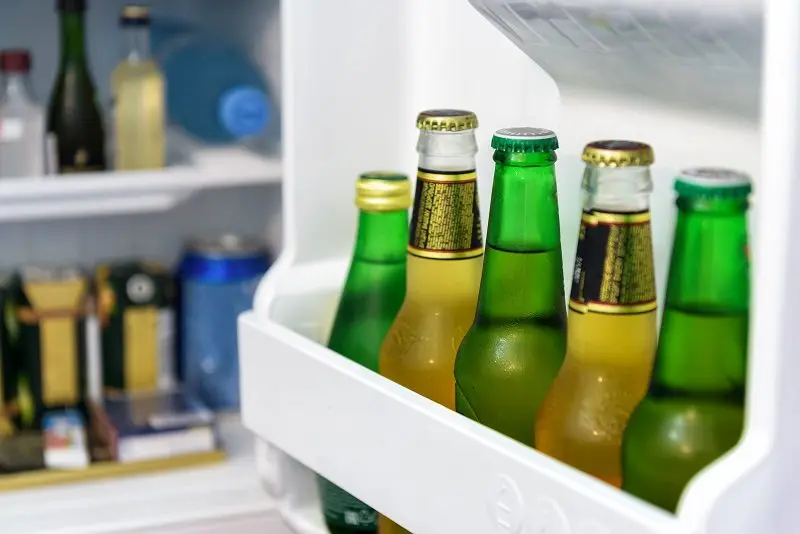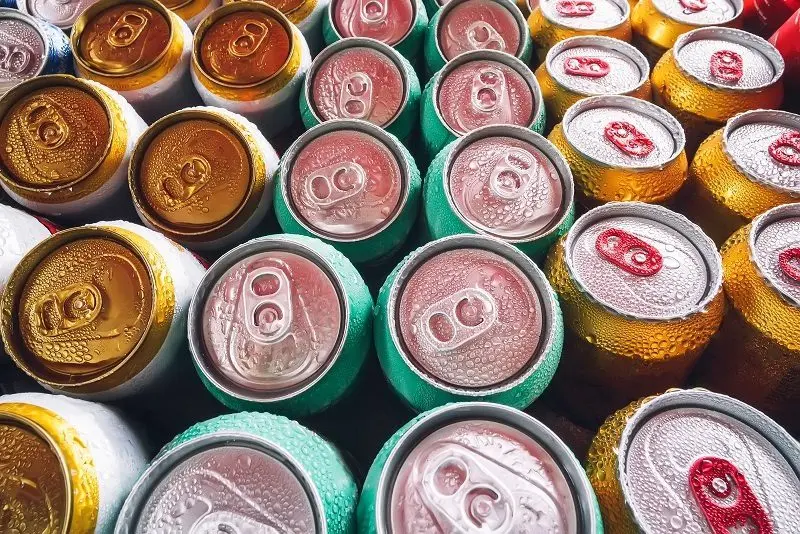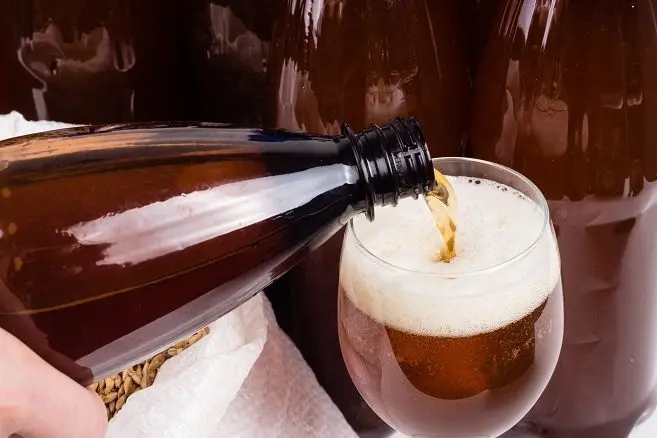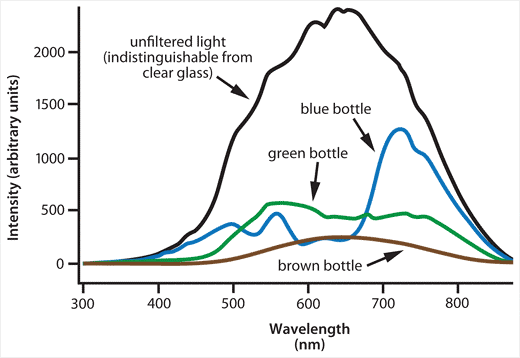The problem of proper storage of beer is of interest not only to professional brewers and collectors. Lagers, stouts, and other flavors can be spoiled in a few hours, so even if you’re buying a dozen bottles for tomorrow’s party, you still need to make sure that the beer is stored in the right conditions, otherwise the guests will be disappointed. It is important to remember the following points:
1. The position of the bottle. Unlike noble wine, which is stored in a horizontal position (so that the cork does not dry out) in special wine cellars, it is customary to store beer vertically – this reduces the contact of the drink with the cork (lid) and the air under it. In addition, sometimes there is a yeast sediment in the beer, with the correct position of the bottle, it collects on the bottom and does not fall into the glass.
2. Storage location. Beer must be isolated from the damaging effects of ultraviolet radiation – this is why at the factory the drink is bottled in green or dark glass bottles, not transparent.
Obviously, freshly bought beer should not be placed on a sun-drenched window sill or left on the table – the storage place should be cool and dry.
A special beer cellar is well suited, but in city apartments one cannot count on such luxury. An alternative to professional storage is a separate beer cooler. You can get by with ordinary household ones, but then the bottles will be ventilated every time you need to get food, and regular temperature changes affect the quality not in the best favor.

3. Temperature and humidity. It is customary to drink beer cold, but not ice-cold – with a strong freeze (as with excessive heating), the taste deteriorates. When it comes to optimal temperature, a fairly simple rule applies: the stronger the beer, the higher the storage temperature can be.
Light lagers and ales will do well at 7-10°C, stouts and dark ales do best at 12,8-15,5°C, and most beers keep well at the standard temperature of 10-12,8°C. . The recommended relative air humidity is up to 85%.
If some errors were made during the brewing of beer, and the drink turned out to be imperfect, all the roughness of the taste will appear when the temperature rises. This is another reason why it is better to drink beer chilled – it will taste better.
How long can beer be stored
Open – not at all. The foamy drink is completely exhausted even in a few hours, and the next day the beer will already have a frankly unpleasant musty aftertaste.
The expiration date of a bottled drink should be looked at on the label – usually manufacturers scrupulously indicate it. It all depends on the type of beer and how it is made. There are special types designed for long exposure – they ripen after pouring into containers. Other brands only deteriorate over time and should be consumed as quickly as possible. There are varieties designed for long-term storage up to 25 years.
Unpasteurized beer, which will not survive even a few hours of transportation, is never sent for export – it simply does not have time to reach foreign tables, it spoils earlier.
Everything is very individual. Experts say that the only reliable way to determine the optimal period and storage conditions for beer is to buy several bottles of the same variety and personally taste them at different intervals, carefully recording all changes in taste in a special observation diary.
If you plan to become a beer sommelier and devote yourself to such experiments, you cannot do without a separate basement or at least a pantry – you will have to provide a separate cool place for drinks with a constant temperature and good ventilation.
Tin, plastic or glass containers?
Metal in contact with beer distorts the taste of the drink. Manufacturers, of course, try to prevent this from happening and cover the inside of the cans with a layer of protective varnish, but any deformation of the container, for example, a slight blow during transportation, leads to a violation of the integrity of this film and, accordingly, to a decrease in the quality of beer. In this regard, a glass bottle is much better – but only if it does not let in sunlight.

But there are no complaints about plastic, so even Guinness, even elite craft varieties, can be poured into unassuming poltorashki – the taste will not deteriorate, and the beer will retain all its properties.
One caveat – plastic bottles cannot be reused, as there is a risk of poisoning. Experts say that glass is nobler, but there is more personal taste than objective data.
Specialists often acquire special kegs for storing beer. These are capacious vessels of 20–50 liters, they require a well-equipped and insulated room, it will not work to put kegs “in the kitchen behind the door”. If you supply such a keg with a tap, you can regularly taste the drink and check the degree of its maturity.

Features of storing live beer
Live beer is distinguished by a pronounced yeast sediment. The use of a refrigerator for this drink is detrimental – the yeast dies at low temperatures, and the lack of pasteurization does not allow the drink to be stored for a long time.
If you plan to take home a couple of pints of your favorite beer from the pub, make sure that the bartender does not immediately screw the cap on the bottle, but after a minute or two, this will force the carbon dioxide out of the neck of the air, which again will have a positive effect on the taste of the beer.
Factory varieties are stored for a long time precisely due to pasteurization, which kills all microorganisms, but does not affect the taste. In addition, breweries carefully monitor the sterility of equipment and follow strict bottling rules. Hop essential oils are excellent natural antioxidants, so there are no preservatives in real beer – they are simply not needed.










